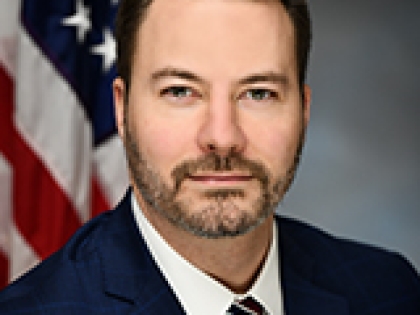
NCIDA to oversee state funds for Falls projects

The Niagara County Industrial Development Agency will administer a Falls-based economic development fund established by state Sen. Robert Ortt.
The IDA board voted unanimously Wednesday to adopt what Ortt has christened the Niagara Falls Tourism Target Zone program, a $3.4 million account of state municipal aid set aside during the last two fiscal years.
Officials unveiled plans for the program earlier this month on the top floor of the One Niagara building in downtown Niagara Falls. The IDA approval officially sets the program in motion. Ortt and other officials said it will target projects within a one- to two-mile radius around the Seneca Niagara Resort and Casino.
Some administrative decisions remain, according to Sam Ferraro, the IDA's executive director. Chief among them is the assembly of a steering committee that Ortt has said will review funding applications and recommend selections to the IDA board, which is tasked with the final approval.
"We'll be discussing that with the board soon," Ferraro said after the IDA's monthly meeting.
Ferraro said the board still needs to discuss and choose the protocol for selecting and approving members of the committee.
"Hopefully, we can have something in place by the August meeting, but again I don't want to speak for the board," he said.
Despite the absence of steering committee members, Ferraro said the program is open to accepting applications. The contact point at the IDA is Susan Langdon, the agency's director of projects and finance, who will oversee the fund at the "staff level."
Ortt responded to a request for comment through his Communications Director, Antoinette DelBel, saying he was "pleased to have secured this funding" but the "initiative is still in the early stages."
"We have the parameters; we have the target area; and most importantly, we have the funding," DelBel said.
"It’s the Senator’s hope that by the end of summer a steering committee will be in place and will start reviewing applications," she continued.
Ferraro's colleague, Stephen Brady, the IDA board's chairman, previously called the program a further "catalyst" for downtown development. Projects approved through the NFTTZ may be eligible, with a separate application, for tax abatements through the IDA.
Hotel projects will not be funded by the NFFTZ, according to the program requirements, nor will previous expenditures or acquisitions be reimbursed.
The program will prioritize funding for new construction and rehabilitation for both commercial applicants and smaller-scale efforts. Eligible application costs include labor an materials, "on-site infrastructure and site preparation," demolition to advance new structures," and "tenant build-outs, including construction and renovation," "machinery equipment," furniture and fixtures purchases.
The minimum funding amount is $50,000. NFFTZ support is capped at no more than 25 percent of a total project's cost and applicants will be required to put up at least 20 percent cash equity. The IDA will take 3 percent of a grant amount as an "administrative fee."



